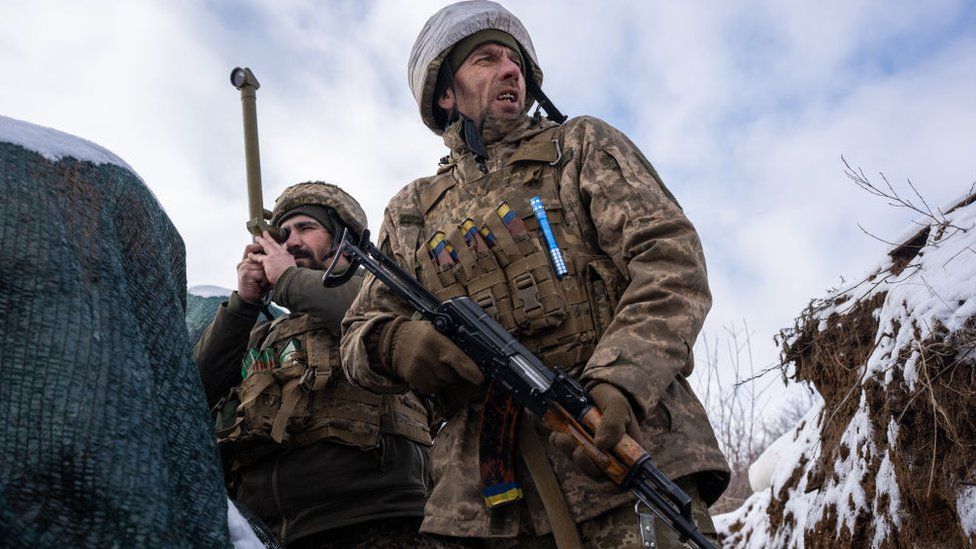Friday, 21 January 2022
German Ex-Chancellor Merkel Rejects Job Offer From The United Nations
Senegal local elections key test for President Sall
Cyanide (Gas) Explosion at Bogoso-Appiatse Distroyed Lives and properties.
Cyanide Explosion Destroyed Lifes And Properties at Appiatse a sub In Bogoso, Western Region, Ghana.
Information reaching bigayehmedia.com is that there has been a cyanide-gas explosion at Bogoso-Aopiatse which have claimed many life sadly today around 1:15pm

The main factor which caused such a fatal accident was as a result of the cyanide car moving from Bogoso to Kumasi road crushing with a motor bike which led to the subsiding of the cyanide car leading to a fire explosion and claiming many lives.
We are digging in deeper to bring our charish readers the rest of the store so stick with us.



…………………………………………………………
Freedoms guaranteed-Says Tunisian President,Kais Saied
Ukraine tension: Urgent US-Russia talks in Geneva as invasion fears grow
US Secretary of State Antony Blinken and Russian Foreign Minister Sergei Lavrov met for talks in Geneva on Friday amid mounting fears that Russia could be about to invade Ukraine.
“This is a critical moment,” Mr Blinken said in his opening remarks.
The US and Russia “don’t expect to resolve our differences here today”, he added, but hoped to test whether diplomacy was still a viable option.
Speaking afterwards, Mr Lavrov described the talks as open and useful.
Moscow has 100,000 troops near its borders with Ukraine, but denies planning to invade.
Across the table in a luxury Swiss hotel, Mr Blinken warned his Russian counterpart of a “united, swift and severe” response if Russia did take that step.
President Vladimir Putin has issued demands to the West which he says concern Russia’s security, including that Ukraine be stopped from joining Nato.
He wants the Western defensive alliance to abandon military exercises and stop sending weapons to eastern Europe, which Moscow sees as its backyard.
At a press conference after the meeting, Mr Lavrov accused Nato of working against Russia. He reiterated Moscow’s position that it has “never threatened the Ukrainian people” and has no plans to attack Ukraine.
The US will present Russia with a written response to its security red lines “next week”, he added.
Mr Blinken is expected to address the media shortly.

Tensions over Ukraine
- EXPLAINED: Is Russia preparing to invade Ukraine?
- FROM KYIV: Ukrainians wait as Russia faces off with the West
- FROM BRUSSELS: EU ‘closest to war’ in decades over Russia-Ukraine crisis
- UK SUPPORT: UK says it is sending weapons to defend Ukraine
- What do you want to know about the tensions between Russia and Ukraine? Email yourquestions@bbc.co.uk

What do the US and Russia want from these talks?
Earlier this week, State Department officials said Mr Blinken would seek to offer Mr Lavrov a “diplomatic off-ramp” to ease tensions.
Mr Blinken could offer Russia more transparency on military exercises in the region, or suggest reviving restrictions on missiles in Europe. These rules were previously set out in the Intermediate-Range Nuclear Forces Treaty, a Cold War-era pact that the US scrapped in 2019, after accusing Russia of violating the deal.
Russia maintains that Ukraine is its primary focus. On Thursday it unveiled plans for naval drills involving more than 140 warships and more than 60 aircraft, seen as a show of strength.
 IMAGE SOURCE,GETTY IMAGES
IMAGE SOURCE,GETTY IMAGESThe same day, the US warned that Russian intelligence officers had been recruiting current and former Ukrainian government officials to step in as a provisional government and cooperate with an occupying Russian force in the event of an invasion.
The US Treasury Department imposed sanctions on two current Ukrainian members of parliament and two former government officials accused of being part of the plot.
How unified are the US and its allies?
Mr Blinken arrived in Geneva after a trip to Kyiv to show support for Ukraine, and talks with Britain, France and Germany in Berlin.
Several European nations have now moved to bolster Nato’s military deployment in eastern Europe. Spain is sending warships to join Nato naval forces in the Mediterranean and the Black Sea, and Denmark also said it would send a frigate to the Baltic Sea.
French President Emmanuel Macron has offered to send troops to Romania.
Earlier this week, Britain announced it was supplying Ukraine with extra troops for training and defensive weapons.
In a speech on Friday, UK Foreign Secretary Liz Truss called on Mr Putin to “desist and step back from Ukraine before he makes a massive strategic mistake” that would lead to terrible loss of life.
President Biden had triggered questions about the consistency of the US line on Ukraine on Wednesday, when he bleakly predicted that Russia “will move in” on Ukraine, but appeared to suggest a “minor incursion” could attract a weaker response from the US and its allies.
The message drew a rebuke from Ukrainian President Volodymyr Zelensky, who tweeted: “There are no minor incursions. Just as there are no minor casualties and little grief from the loss of loved ones.”
Mr Biden then sought to clarify by saying any Russian troop movement across Ukraine’s border would qualify as an invasion and that Moscow would “pay a heavy price”.
……………………………………………………………
A Royal Encounter at Madame Tussauds London - Part 7
Exploring the Majesty of the Palace and Its Distinguished Guests Greetings, ladies and gentlemen! My name is Sofonie Dala, and I am deligh...

-
Since the July 26 coup, Niger has become the latest hotbed of disinformation in the troubled Sahel region as West African powers grapple wit...
-
Angolan President of Republic João Lourenço marked Saturday (26) the third year of his five-year in office, marked by the strong negative ...
-
Celebrating Purpose, Passion & Powerful Public Engagements! Dear Changemakers, As we reach the midpoint of 2025, we’re thrilled to sha...





